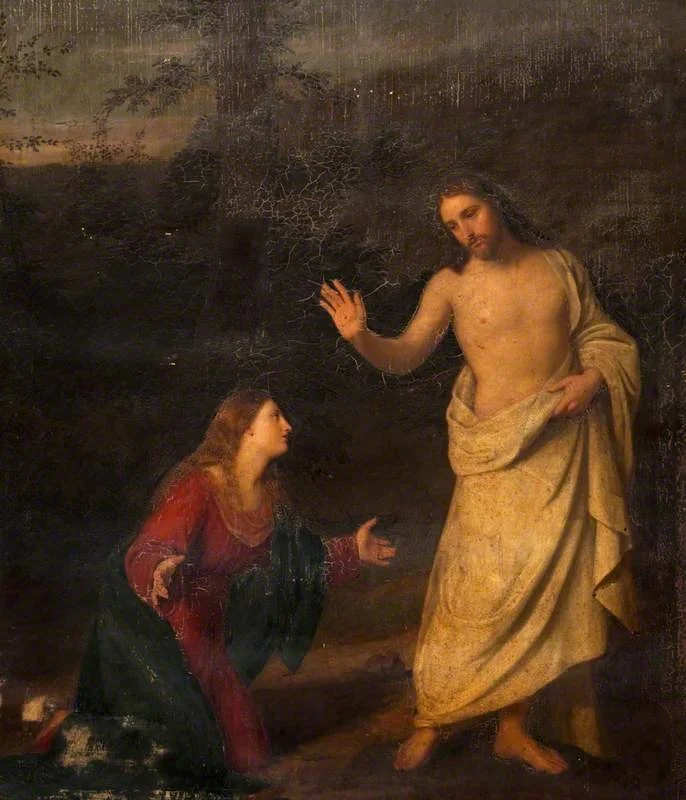Mary, Do You Know?
by Aaron Hann
Christ Appearing to Mary Magdelene, John Graham-Gilbert, 19th Century
MARY, DO YOU KNOW?
This poem is a meditation on John 20:14 when Mary, after looking into the empty tomb and talking with the angels, is passively “turned around.” Most English translations say Mary “turned around and saw Jesus.” However, the Greek verb for “turn” is passive, as Scot McKnight translates: “Saying these things, she was turned to what was behind her and she observes Yēsous standing, and she had not known that it’s Yēsous.” (1) That same verb is passive again in 20:16 when, strangely, Mary “was turned” a second time after Jesus said her name. Because John uses a similar double turning with an active voice in Revelation 1:12, these passive verbs with Mary seem intentional and significant.
Mary, Do You Know?
What turned you around
When you stood petrified,
Staring
Into the tides of death,
Your body stiff and still
As stone thought
To find in front of your failed
Hope?
Something turned you around.
Mary, do you know?
Was it birdsong
Saying “Good morning” to the sun
Rising within you?
But how could you hear
Dove coos
Above your rent wailing,
Which crashes over you like waves
And threatens to drown out
The dawn?
Something turned you around.
Mary, do you know?
Was it something louder,
More definite and defined—
A human voice,
Singing
Behind you?
If so, it must have been
A strong voice, able
To thunder over the waves
Of your weeping,
Like a sonorous watchman, booming
Praise at the Sun’s victory over Night.
Something turned you around.
Mary, do you know?
Was it human, yet hushed?
The hum of a happy gardener,
Keeping rhythm with the tune
Of his pruning?
But only in the calm
Between breakers of tears
Could you hear his hum
And the branches dropping.
Mary, what turned you?
Do you know?
What was it that you heard,
“Not known, because not looked for
But heard, half-heard, in the stillness
Between two waves of the sea”? (2)
Was it even deeper, unseen and unheard?
Maybe your eyes, dripping despair,
Flooded the small cave of your empty heart
And put you afloat on a watery grave.
Rudderless, you are passive,
Turned at will by water and wave and wind
Blowing you where it pleases.
You hear its sound,
Yet don’t know where it comes from;
Don’t know where it’s going.
But it bore you along
Your river of grief—
“Streams of living water
Flowing from deep within.”
Is that what turned
Your wailing raft
Around
And
Respired it
From the grave
Onto the garden shore?
(1) Scot McKnight, The Second Testament: A New Translation (Downers Grove: IVP Academic, 2023).
(2) T.S. Eliot, Four Quartets (Orlando: Harcourt Books, 1971), 59.
AARON HANN
Aaron is a counselor and writer who lives in Kansas City with his wife Kristen and two teenagers. In his counseling and writing, Aaron focuses on spiritual abuse and helping those who have been hurt by churches and religious organizations. In addition to weekly posts and essays at his substack, http://onceaweek.substack.com, Aaron has written for Cateclesia and has a forthcoming article with the Journal for the Study of Bible and Violence. He has a master’s degree in counseling from Covenant Theological Seminary and a bachelor’s in Bible and pastoral studies from Moody Bible Institute.


